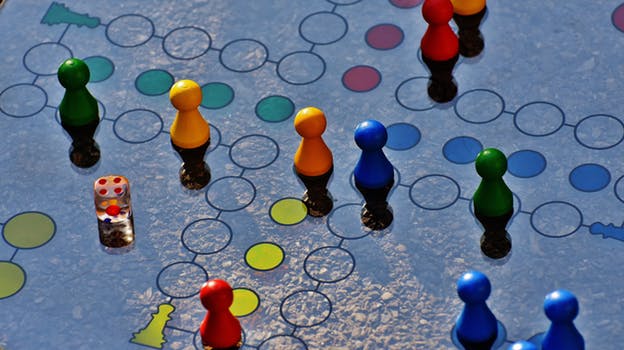Long winter breaks and snow days can leave kids feeling bored and parents a bit frazzled. As one of my friends texted last night, “there are not enough movies or wine in this house to get us through another day off of school.” While I definitely appreciate the structure and routine of school days, these unexpected snow days bring me the same excitement and relief I felt as a kid when I spent those days playing Monopoly with my best friend, Wendy.
Days playing board games or cards with friends are not wasted days. In fact, last year, I assisted a classroom teacher in incorporating board games into her 1st grade curriculum as she had a class of kids who were working on various social skills and character building including cooperation, patience, being a good sport, negotiating, independence, and perseverance. Kids learn these skills (and many more) when having to 1) agree on a game to play, 2) figure out and agree on the rules they will play by, 3) agree on the division of roles, pieces, and order of turns, 4) play by the rules, 5) stick with the game until the end (or an agreed upon stopping point), 6) solve problems fairly as they arise, 7) maintain interest and frustration level even when losing, 8) have conversations with each other, 9) pay attention to details, and 10) end the game gracefully (by congratulating the winner or celebrating a win in a friendly way).
While kids are getting practicing these skills, they may need some help from parents to understand the rules and resolve conflicts, but eventually they should be able to entertain themselves playing without much adult intervention. Follow these steps to help your kids develop an appreciation for playing games with others:
- Model. To start, choose a short card game or board game that you actually enjoy playing. Introduce the game by briefly explaining the rules and then showing them how to play. When you’re playing, go ahead and engage in some good-natured teasing to keep the competition fun and exciting, and be sure to congratulate others on their good luck and smart plays, too.
- Pair the experience of game playing with something else enjoyable. Get in cozy jammies, sit by the fire, bring out some fun snacks or treats. Help your kids develop associations between game playing and an overall fun and positive experience.
- Don’t play by the rules. Once your kids have learned the rules and can play without constant adult intervention, back off a bit. Sit out for a hand while you refresh the snacks or let them start a round while you take a quick break to get lunch ready. If there’s a question about the rules or how to resolve a dispute, don’t jump in right away with the solution. Let your kids offer up a solution. If it seems reasonable, play it their way. Remember that, even as adults, we’re not always in agreement with the “official” rules and what is most important is agreeing on the rules you will play by in this game. Teach kids if the rules make sense and everyone is happy with them, that’s ok.

